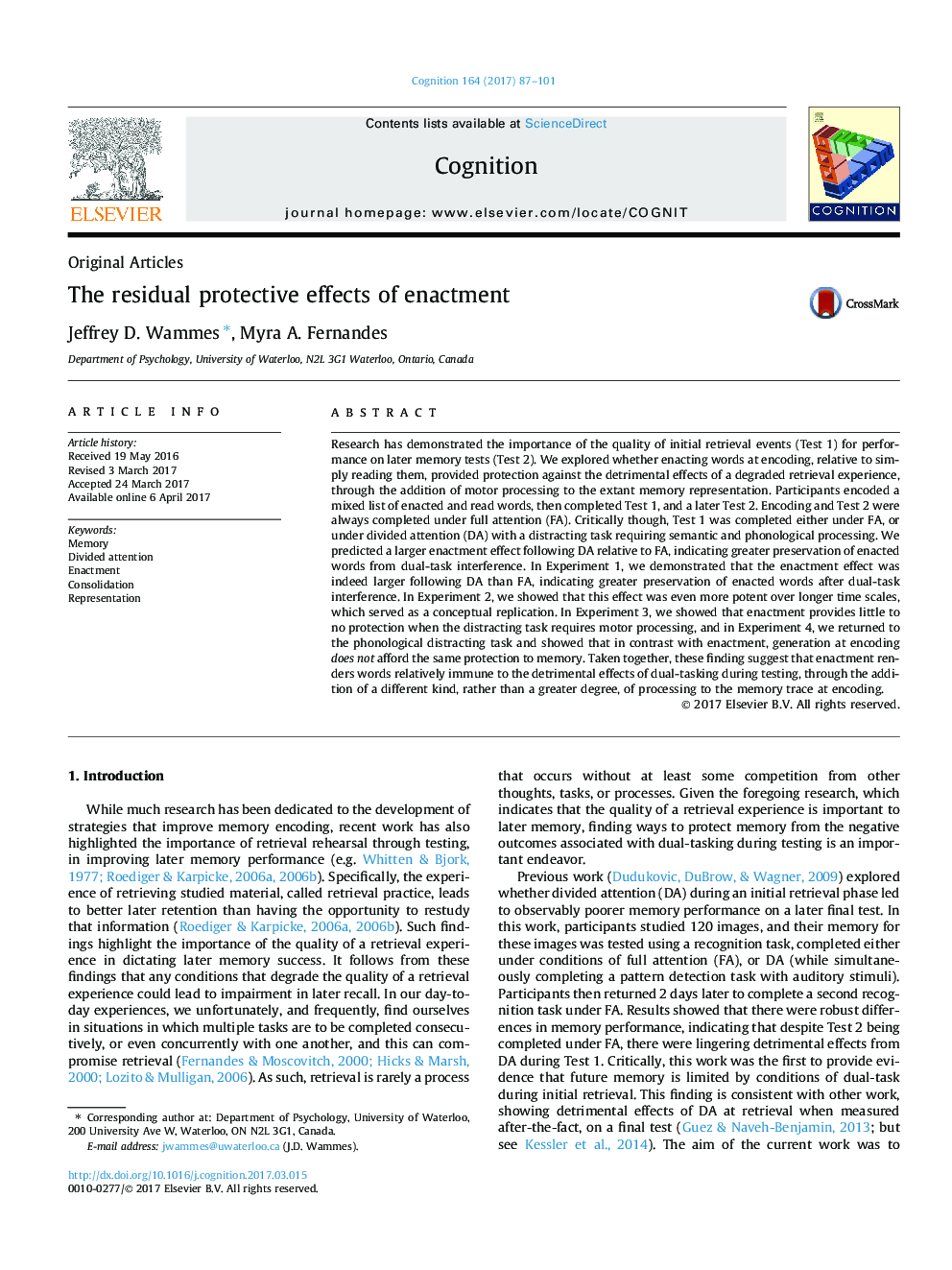| Article ID | Journal | Published Year | Pages | File Type |
|---|---|---|---|---|
| 5041603 | Cognition | 2017 | 15 Pages |
Research has demonstrated the importance of the quality of initial retrieval events (Test 1) for performance on later memory tests (Test 2). We explored whether enacting words at encoding, relative to simply reading them, provided protection against the detrimental effects of a degraded retrieval experience, through the addition of motor processing to the extant memory representation. Participants encoded a mixed list of enacted and read words, then completed Test 1, and a later Test 2. Encoding and Test 2 were always completed under full attention (FA). Critically though, Test 1 was completed either under FA, or under divided attention (DA) with a distracting task requiring semantic and phonological processing. We predicted a larger enactment effect following DA relative to FA, indicating greater preservation of enacted words from dual-task interference. In Experiment 1, we demonstrated that the enactment effect was indeed larger following DA than FA, indicating greater preservation of enacted words after dual-task interference. In Experiment 2, we showed that this effect was even more potent over longer time scales, which served as a conceptual replication. In Experiment 3, we showed that enactment provides little to no protection when the distracting task requires motor processing, and in Experiment 4, we returned to the phonological distracting task and showed that in contrast with enactment, generation at encoding does not afford the same protection to memory. Taken together, these finding suggest that enactment renders words relatively immune to the detrimental effects of dual-tasking during testing, through the addition of a different kind, rather than a greater degree, of processing to the memory trace at encoding.
